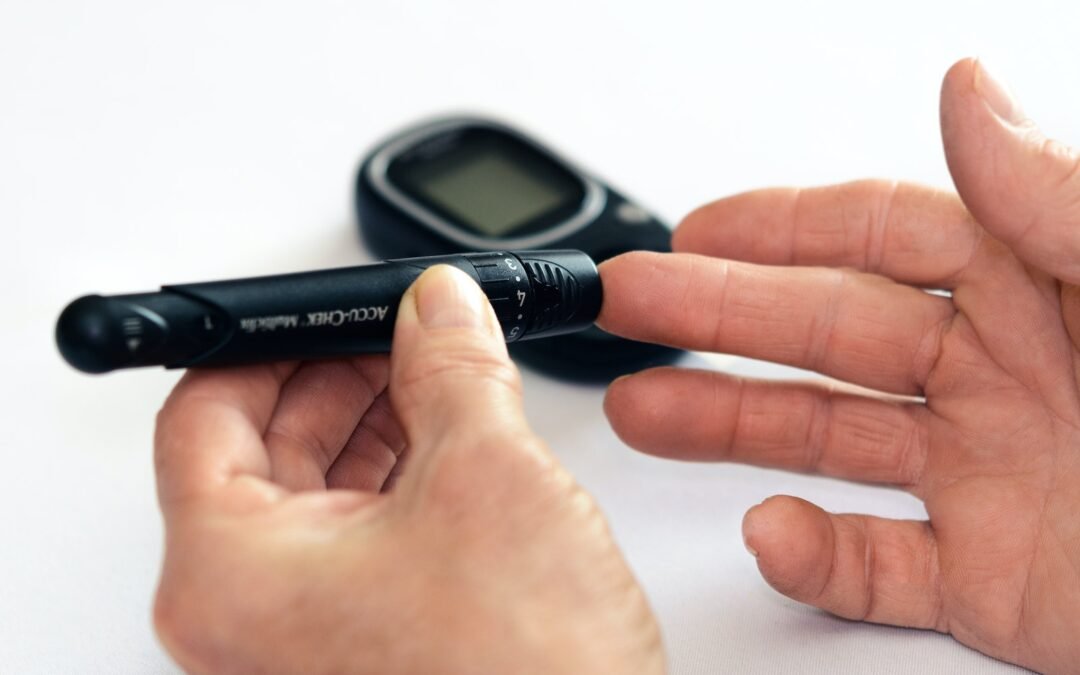The Mediterranean diet is a popular eating plan that emphasizes consuming whole, nutrient-dense foods. This diet is based on the traditional eating patterns of people in countries bordering the Mediterranean Sea, such as Greece, Italy, and Spain. The Mediterranean diet is rich in healthy fats, whole grains, fruits, and vegetables, but some foods are not allowed on this diet.
One of the key principles of the Mediterranean diet is to avoid processed and refined foods. This means that foods like white bread, sugary snacks, and processed meats should be avoided. Instead, the diet emphasizes whole grains, fruits, and vegetables, which are rich in fiber, vitamins, and minerals.
Another food group that is not allowed on the Mediterranean diet is saturated and trans fats. These fats are found in foods like butter, margarine, and fried foods. Instead, the diet emphasizes healthy fats like olive oil, nuts, and seeds, which are rich in monounsaturated and polyunsaturated fats. By avoiding these unhealthy fats and focusing on healthy ones, the Mediterranean diet can help reduce the risk of heart disease and other chronic illnesses.
Understanding the Mediterranean Diet
The Mediterranean diet is a way of eating that is inspired by the traditional dietary patterns of the Mediterranean region. This diet is rich in healthy fats, whole grains, fruits, and vegetables. It is also low in red meat, processed foods, and sugar.
One of the primary reasons why the Mediterranean diet is so popular is because it has been linked to numerous health benefits. For example, research has shown that this diet can help reduce the risk of heart disease, stroke, and type 2 diabetes. It may also help improve brain function and reduce the risk of certain types of cancer.
The Mediterranean diet is not a strict set of rules, but rather a flexible dietary pattern that can be adapted to suit individual preferences and needs. Some of the key components of this diet include:
- Eating plenty of fruits, vegetables, and whole grains
- Consuming healthy fats, such as olive oil, nuts, and seeds
- Eating fish and seafood at least twice a week
- Reducing red meat consumption
- Avoiding processed foods and sugar as much as possible
- Drinking red wine in moderation (optional)
It is important to note that the Mediterranean diet is not a low-fat diet. Instead, it emphasizes the consumption of healthy fats, such as those found in olive oil, nuts, and seeds. These fats can help improve cholesterol levels and reduce inflammation in the body.
Overall, the Mediterranean diet is a healthy and sustainable way of eating that can provide numerous health benefits. By focusing on whole, nutrient-dense foods and avoiding processed foods and sugar, individuals can improve their overall health and well-being.
Foods to Avoid on the Mediterranean Diet
Processed Foods
Processed foods are not allowed on the Mediterranean diet. These foods are often high in calories, sugar, and unhealthy fats. They also contain a lot of additives and preservatives that can be harmful to health. Processed foods to avoid include:
- Fast food
- Frozen dinners
- Packaged snacks
- Processed meats (e.g., hot dogs, bacon, sausage)
- Canned soups and vegetables
- Margarine and other spreads
- Flavored yogurt
- Instant noodles
Refined Grains
Refined grains are grains that have been stripped of their fiber and nutrients. They are often used in processed foods and baked goods. Refined grains are not allowed on the Mediterranean diet because they can cause blood sugar spikes and lead to weight gain. Refined grains to avoid include:
- White bread
- White pasta
- White rice
- Pastries and cakes
- Breakfast cereals
- Crackers
Sugary Drinks
Sugary drinks are high in calories and sugar but low in nutrients. They are not allowed on the Mediterranean diet because they can lead to obesity, type 2 diabetes, and other health problems. Sugary drinks to avoid include:
- Soda
- Fruit juice (unless freshly squeezed)
- Sports drinks
- Energy drinks
- Sweetened tea and coffee
Trans Fats
Trans fats are a type of unhealthy fat that is often found in processed foods. They are not allowed on the Mediterranean diet because they can raise cholesterol levels and increase the risk of heart disease. Trans fats to avoid include:
- Fried foods
- Packaged snacks
- Margarine and other spreads
- Baked goods (e.g., cookies, cakes, pastries)
Refined Oils
Refined oils are oils that have been processed and stripped of their nutrients. They are often used in processed foods and fried foods. Refined oils are not allowed on the Mediterranean diet because they can lead to inflammation and other health problems. Refined oils to avoid include:
- Vegetable oil
- Canola oil
- Soybean oil
- Corn oil
- Sunflower oil
By avoiding these foods and focusing on whole, unprocessed foods, people can enjoy the many health benefits of the Mediterranean diet.
Why These Foods Are Not Allowed
The Mediterranean diet is known for its health benefits and is based on the traditional eating habits of people from countries surrounding the Mediterranean Sea. The diet emphasizes consuming whole foods, such as fruits, vegetables, whole grains, and lean proteins while limiting processed foods and unhealthy fats.
Here are some foods that are not allowed on the Mediterranean diet and why:
1. Processed Foods
Processed foods are high in calories, unhealthy fats, and added sugars. They are often low in nutrients and can lead to weight gain and other health problems. The Mediterranean diet emphasizes consuming whole foods and limiting processed foods.
2. Refined Grains
Refined grains, such as white bread, pasta, and rice, are stripped of their fiber and nutrients during processing. This can lead to spikes in blood sugar levels and an increased risk of type 2 diabetes. The Mediterranean diet emphasizes consuming whole grains, such as brown rice, quinoa, and whole-grain bread.
3. Red Meat
Red meat is high in saturated fat, which can increase cholesterol levels and increase the risk of heart disease. The Mediterranean diet emphasizes consuming lean proteins, such as fish, poultry, and legumes.
4. Sugary Drinks
Sugary drinks, such as soda and fruit juice, are high in added sugars and calories. They can lead to weight gain and other health problems, such as type 2 diabetes and heart disease. The Mediterranean diet emphasizes consuming water, unsweetened tea, and coffee.
Overall, the Mediterranean diet is a healthy way of eating that emphasizes whole foods and limits unhealthy fats and processed foods. By avoiding the foods listed above, individuals can improve their health and reduce their risk of chronic diseases.
Effects of Non-Compliance with Diet
Not following the Mediterranean diet can have several negative effects on the body. Here are some of the consequences of non-compliance:
Increased Risk of Chronic Diseases
The Mediterranean diet is known for its health benefits, including reducing the risk of chronic diseases such as heart disease, cancer, and diabetes. Not following the diet can increase the risk of developing these diseases. For example, a diet high in saturated fats, refined sugars, and processed foods can lead to high blood pressure, high cholesterol levels, and inflammation, which are all risk factors for heart disease.
Weight Gain
The Mediterranean diet emphasizes whole, nutrient-dense foods, and limits processed foods and added sugars. Not following the diet can lead to weight gain, as these foods tend to be high in calories and low in nutrients. In addition, the diet encourages regular physical activity, which can also help with weight management.
Poor Digestive Health
The Mediterranean diet includes a variety of fruits, vegetables, whole grains, and legumes, which are all high in fiber. Not following the diet can lead to poor digestive health, as a diet low in fiber can cause constipation, bloating, and other digestive issues.
Decreased Energy Levels
The Mediterranean diet includes healthy fats, such as olive oil and nuts, which provide energy and help with satiety. Not following the diet can lead to decreased energy levels, as a diet high in processed foods and added sugars can cause blood sugar spikes and crashes.
In conclusion, not following the Mediterranean diet can have several negative effects on the body, including an increased risk of chronic diseases, weight gain, poor digestive health, and decreased energy levels. It’s important to follow the diet as closely as possible to reap its health benefits.
Alternatives to Non-Allowed Foods
Following the Mediterranean diet means avoiding certain foods that are not considered healthy, such as processed foods, refined sugars, and unhealthy fats. However, there are many delicious and nutritious alternatives to these non-allowed foods that can be incorporated into your daily diet.
Whole Grains
Instead of refined grains like white bread and pasta, the Mediterranean diet emphasizes whole grains such as whole wheat bread, brown rice, and quinoa. These whole grains are high in fiber, which helps to keep you feeling full and satisfied. They also contain more nutrients than refined grains, including vitamins, minerals, and antioxidants.
Here are some examples of whole grains that can be included in the Mediterranean diet:
- Whole wheat bread
- Brown rice
- Quinoa
- Barley
- Oats
- Bulgur
Natural Sweeteners
The Mediterranean diet discourages the use of refined sugars, which are found in many processed foods and beverages. Instead, natural sweeteners can be used to add sweetness to meals and snacks.
Here are some natural sweeteners that can be used in place of refined sugars:
- Honey
- Maple syrup
- Agave nectar
- Stevia
- Dates
These natural sweeteners are lower in calories than refined sugars and contain more nutrients, such as antioxidants and vitamins.
Healthy Fats
The Mediterranean diet emphasizes healthy fats, such as monounsaturated and polyunsaturated fats, which are found in foods like olive oil, nuts, and fatty fish. These fats are important for heart health and can help to reduce inflammation in the body.
Here are some examples of healthy fats that can be included in the Mediterranean diet:
- Olive oil
- Avocado
- Nuts (almonds, walnuts, pistachios)
- Seeds (chia, flax, pumpkin)
- Fatty fish (salmon, mackerel, sardines)
By incorporating these alternatives to non-allowed foods into your diet, you can enjoy delicious and nutritious meals that are in line with the Mediterranean diet.
Conclusion
In conclusion, the Mediterranean diet is a healthy and balanced way of eating that emphasizes whole, unprocessed foods. While there are many foods allowed on the diet, there are also some foods that are not allowed.
Processed foods, refined grains, and added sugars are all foods that are not allowed on the Mediterranean diet. These foods are often high in calories, low in nutrients, and can contribute to weight gain and chronic disease.
Additionally, the Mediterranean diet limits the intake of red meat and encourages the consumption of fish, poultry, and plant-based proteins. This is because red meat is often high in saturated fat and can increase the risk of heart disease.
Alcohol is also allowed in moderation on the Mediterranean diet, but excessive consumption should be avoided.
Overall, the Mediterranean diet is a flexible and sustainable way of eating that can provide numerous health benefits when followed properly. By avoiding foods that are not allowed and emphasizing whole, nutrient-dense foods, individuals can improve their overall health and well-being.





